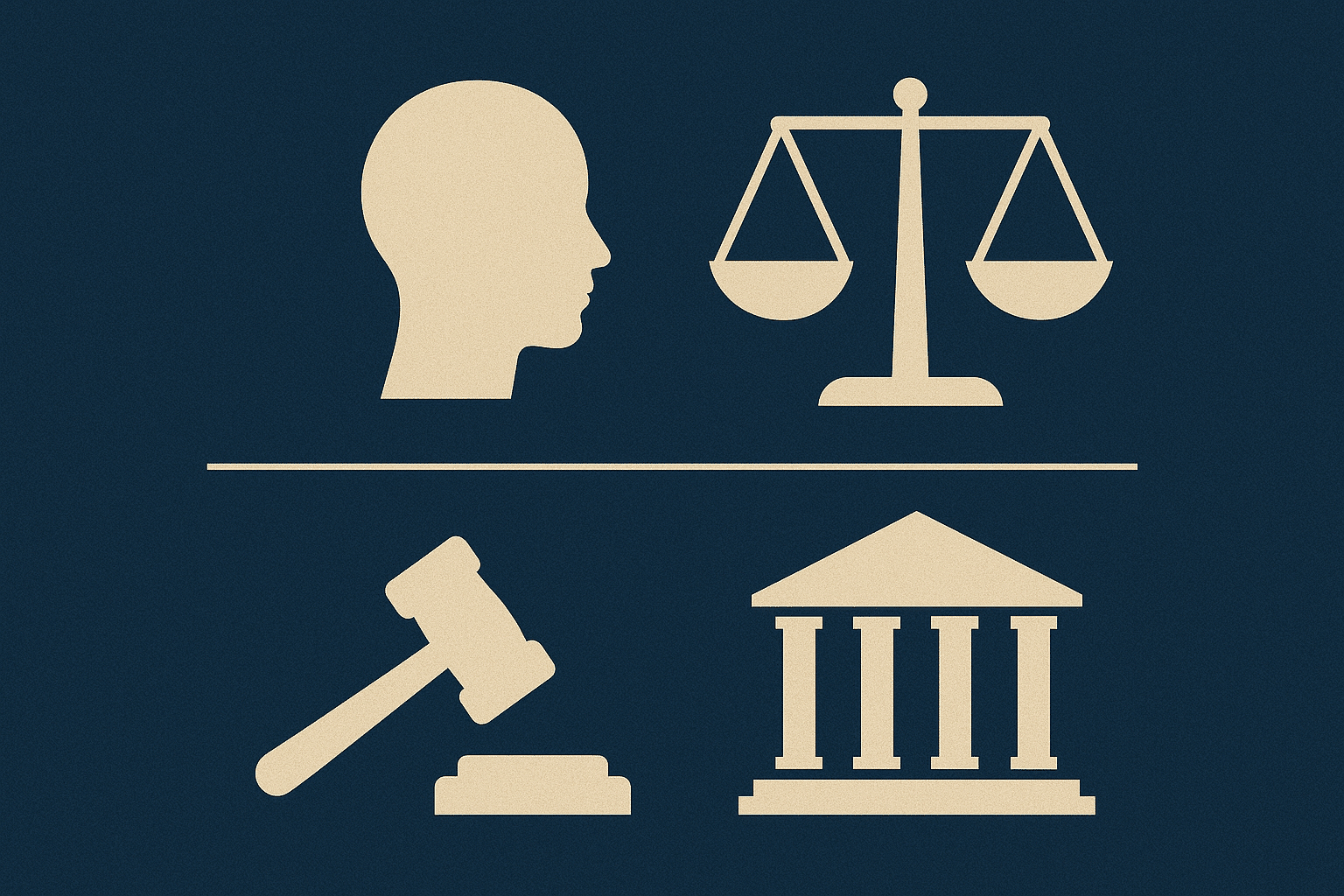
When you hear someone say, “I plead the Fifth,” they’re invoking one of the most powerful constitutional protections available in the United States—the Fifth Amendment. Whether you’re facing criminal charges in Maryland or simply want to understand your rights, it’s crucial to know what the Fifth Amendment protects and how it could apply to your case.
At Southern Maryland Criminal Defense, we believe every client should understand their rights, especially when the stakes are high in criminal courtrooms across Charles, Prince George’s, Calvert, and St. Mary’s Counties.
What Does the Fifth Amendment Protect?
The Fifth Amendment to the U.S. Constitution is part of the Bill of Rights and offers five main protections:
1. The Right Against Self-Incrimination
This is the most well-known aspect. You have the right to remain silent if answering a question could incriminate you.
- You cannot be forced to testify against yourself in a criminal case.
- Police and prosecutors cannot use your silence as evidence of guilt.
- You can assert this right at any stage—during police questioning, depositions, or in court.
2. Protection Against Double Jeopardy
You can’t be tried twice for the same crime once you’ve been acquitted or convicted.
- If you’re found not guilty, the prosecution can’t take another swing at you.
- However, a single act may still lead to both state and federal charges—known as the “dual sovereignty doctrine.”
3. Due Process of Law
The government cannot deprive you of your life, liberty, or property without following fair procedures.
- This includes your right to a fair trial, notice of the charges against you, and an opportunity to be heard.
- It’s a fundamental part of every Maryland criminal case, from traffic citations to felony indictments.
4. Grand Jury Indictments for Serious Crimes
In federal cases, a grand jury must determine if there’s enough evidence to bring formal charges.
- Maryland uses preliminary hearings and charging documents instead of grand juries in many state-level prosecutions.
- But the principle remains the same—charges should not be based on flimsy or biased accusations.
5. The Takings Clause
The government must provide just compensation if it takes your private property for public use.
- This usually arises in eminent domain cases, not criminal defense—but it’s still a core Fifth Amendment protection.
How the Fifth Amendment Works in a Maryland Criminal Case
If you’re under investigation or charged with a crime in Maryland, invoking your Fifth Amendment rights can protect you from making your situation worse. Here’s how:
- Police Questioning: You don’t have to answer. Ask for a lawyer and stay silent.
- Trial Testimony: You can decline to testify in your own defense—and the jury cannot hold that against you.
- Witness Statements: If you’re a witness and could implicate yourself, you may also “plead the Fifth.”
This applies in cases ranging from DUI and drug possession to assault, theft, and homicide charges.
Common Misconceptions About “Pleading the Fifth”
- It’s not an admission of guilt.
- It can’t be used against you.
- It’s not limited to trial—it applies during police interrogations too.
Many people mistakenly believe that invoking the Fifth makes them “look guilty.” In reality, it’s often the smartest legal move you can make.
Why the Fifth Amendment Matters in Southern Maryland
Whether you’re in Charles, Prince George’s, Calvert, or St. Mary’s Court, knowing your rights is the first step in protecting your freedom. Prosecutors may try to get you talking early—before you have legal representation. Don’t fall into that trap.
Need Help? Call a Criminal Defense Lawyer Who Knows Your Rights
If you or a loved one is facing criminal charges in Southern Maryland, don’t risk your future by saying the wrong thing. At Southern Maryland Criminal Defense, we make sure our clients’ rights—including their Fifth Amendment rights—are protected at every step.
📞 Contact us today for a confidential consultation:
Schedule Your Consultation »
